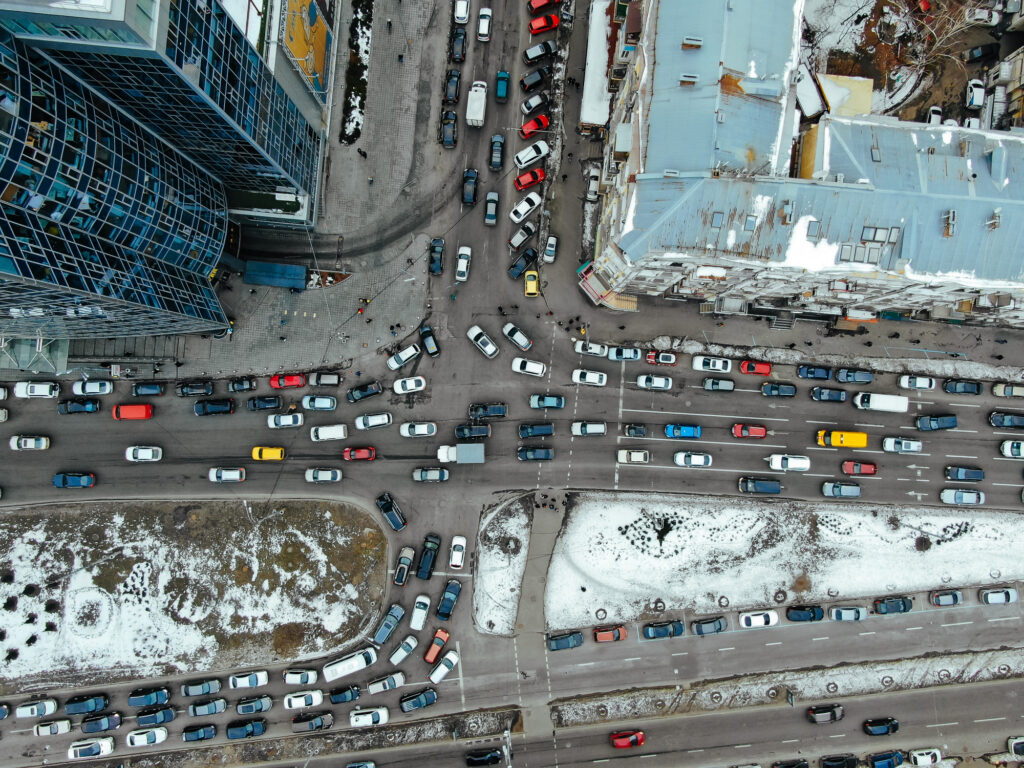
Atlanta, a bustling metropolis in the southeastern United States, is known for its vibrant culture, rich history, and, unfortunately, its notorious road rage problem. As the number of vehicles on the road continues to increase, so does the tendency for drivers to become frustrated and aggressive.
This article delves into the psychology behind Atlanta road rage, the unique traffic situation in Atlanta, its impact on the community, legal implications, and strategies to mitigate this growing issue.
The Psychology Behind Road Rage
Understanding the psychological factors contributing to road rage is crucial for addressing this pervasive issue. Research suggests that young males are the most likely to perpetrate road rage.
Road rage is often rooted in deeper emotional responses and behavioral patterns that can be exacerbated by external factors.
In such cases, understanding your legal options becomes essential. Firms like Howe Law specialize in navigating the complexities of traffic-related incidents, ensuring you’re supported if legal action is necessary.
Aggression and Impatience on the Road
The road is often seen as an extension of one’s personal space, and when that space is encroached upon, it can trigger aggressive behaviors. Drivers may feel that their right to the road is being challenged, leading to impatience and hostility.
Aggression on the road can manifest in various forms, from honking and yelling to more severe acts of reckless driving.
This aggressive behavior is not solely attributed to individual personality traits. Research suggests that situational factors, such as heavy traffic, time constraints, and high stress levels, play significant roles. Drivers who are under stress may be more likely to react aggressively, making the road a battlefield instead of a shared space for transportation.
Furthermore, the anonymity provided by being inside a vehicle can embolden individuals to express anger in ways they might not do face-to-face, leading to a disconnection between their actions and the consequences they may cause.
Stress Factors Contributing to Road Rage
Several stressors amplify the likelihood of road rage incidents. These include:
- Work-related stress: Long hours and demanding jobs can leave drivers feeling overwhelmed and irritable.
- Family obligations: Stress related to family responsibilities may lead to impatience when driving, especially if drivers are running late.
- Environmental stressors: Factors such as weather conditions, construction, and other unexpected delays can frustrate drivers further.
Recognizing these stress factors is crucial for finding effective solutions to reduce road rage incidents. By addressing the root causes of stress, drivers can foster a more patient and safer driving environment.
Additionally, understanding the psychological concept of “displacement” can shed light on why some drivers may direct their frustrations at other road users. When individuals experience stress from one area of their life, they might unconsciously transfer that anger onto others, leading to confrontational behavior on the road.
Moreover, societal influences also play a role in shaping driving behaviors. In cultures where aggressive driving is normalized or even glamorized, individuals may feel pressured to conform to these behaviors, further perpetuating the cycle of road rage.
The portrayal of reckless driving in media and the competitive nature of modern life can create an environment where impatience and aggression become the norm rather than the exception. Understanding these broader societal influences can help design interventions that promote safer driving habits and reduce the prevalence of road rage.
Atlanta’s Traffic Situation

One cannot discuss road rage in Atlanta without considering the city’s unique traffic dynamics. Atlanta has earned a reputation for its gridlock and lengthy commutes, contributing significantly to driver frustration.
Peak Hours and Traffic Congestion
During peak hours, Atlanta’s roads can resemble a parking lot. Major highways such as I-85 and I-285 become congested, leading to extended travel times and, inevitably, heightened emotions. Surveys indicate that the average Atlanta commuter spends several hours in traffic each week, which can escalate stress levels and lead to aggressive driving behaviors.
This congestion affects individual drivers and impacts overall public safety. As frustrations rise, the potential for road rage incidents increases, creating a cycle of aggression and congestion that plagues the city’s streets.
The sheer volume of vehicles, combined with the city’s sprawling layout, means that many commuters face the daunting task of navigating through a maze of cars, often resulting in a sense of helplessness and impatience. Furthermore, the lack of alternative routes can leave drivers feeling trapped, intensifying their anxiety and irritability.
Infrastructure and Road Conditions
Atlanta’s roadway infrastructure also contributes to its road rage problem. Poorly maintained roads, lack of clear signage, and inadequate public transit options can exacerbate drivers’ frustration. Moreover, frequent road work and detours can create bottlenecks that lead to unpredictable traffic patterns.
The city’s rapid growth has outpaced its infrastructure development, leading to a mismatch between the number of vehicles on the road and the capacity of the highways and streets to accommodate them.
Efforts to improve infrastructure are ongoing, but until significant changes are implemented, drivers must navigate these challenges while remaining mindful of their emotional responses on the road. In addition to physical road conditions, the psychological toll of commuting in such an environment cannot be overlooked.
Many residents report that the stress of daily travel affects their overall quality of life, leading to a pervasive sense of frustration that extends beyond the car.
As awareness of these issues grows, community initiatives and discussions around improving public transport options and promoting carpooling are gaining traction, aiming to alleviate some of the pressure on Atlanta’s roadways.
The Impact of Road Rage on Atlanta’s Community
The consequences of road rage extend far beyond individual incidents; they ripple through the entire community, affecting public safety and driving conditions.
Road Rage Incidents and Public Safety
When road rage escalates, it can lead to dangerous situations. Incidents of aggressive driving can result in accidents, injuries, and even fatalities. Statistics from various traffic safety organizations indicate that road rage-related incidents are on the rise in Atlanta, highlighting the urgent need for intervention.
Beyond the physical dangers, road rage can create an environment of fear and anxiety among other drivers, further contributing to a pervasive sense of unrest on the roads. This heightened tension can lead to a cycle of aggressive behavior, where one driver’s outburst provokes another, creating a volatile atmosphere that can escalate quickly.
Moreover, the psychological impact on witnesses of road rage incidents can be profound, leading to long-term anxiety about driving and increased stress levels in daily commutes.
The Economic Cost of Road Rage
Road rage does not only pose safety risks; it also has economic implications. The costs associated with road rage include:
- Accident-related costs: Medical expenses, vehicle repairs, and insurance claims can be significant.
- Increased insurance premiums: Aggressive driving can lead to higher premiums for drivers involved in multiple incidents.
- Lost productivity: Traffic congestion and road rage incidents can lead to decreased productivity in the workforce.
Overall, the economic burden of road rage is substantial, impacting both individual drivers and the larger community. In addition to these direct costs, there are also indirect effects, such as the strain on emergency services and healthcare systems that must respond to the aftermath of road rage incidents.
The increased demand for police presence on the roads to manage aggressive behavior further stretches public resources, diverting attention from other critical community needs.
Furthermore, local businesses may suffer as potential customers avoid congested areas known for road rage, leading to a ripple effect that can stifle economic growth in affected neighborhoods.
Legal Implications of Road Rage in Atlanta
Understanding the legal ramifications of road rage is essential, as aggressive driving can lead to severe penalties and consequences.
Traffic Laws and Road Rage
In Atlanta, traffic laws are strict regarding aggressive driving behaviors. Actions such as tailgating, excessive speeding, and road rage incidents can result in citations and legal action.
The legal framework surrounding traffic safety is designed to deter aggressive behavior; however, enforcement can be challenging.
Law enforcement agencies often face the difficulty of proving intent in road rage cases, as many incidents occur without witnesses or video evidence. Therefore, it is essential for drivers to remain vigilant and report aggressive behaviors when they witness them.
Authorities often rely on public reports and evidence from incidents to impose penalties, highlighting the importance of accountability in addressing road rage issues.
Additionally, the rise of dashboard cameras and mobile phone footage has provided a new avenue for documenting aggressive driving, allowing for more robust evidence in legal proceedings. This technological advancement has empowered citizens to actively promote road safety and hold reckless drivers accountable.
Penalties and Consequences for Aggressive Driving
Penalties for road rage and aggressive driving in Atlanta can include:
- Fines: Drivers caught engaging in aggressive behaviors may face hefty financial penalties.
- License points: Accumulating points on one’s driving record can lead to increased insurance rates and potential loss of driving privileges.
- Legal action: Serious incidents can result in criminal charges, particularly if they result in injury or damage.
These penalties serve to reinforce the importance of safe driving practices and create accountability among motorists. Furthermore, repeat offenders may face more severe consequences, including mandatory traffic school or even jail time, depending on the severity of their actions.
The legal system aims to punish and rehabilitate drivers, encouraging them to reflect on their behavior and its impact on others on the road. This multifaceted approach underscores the need for a cultural shift towards more respectful and considerate driving habits among Atlanta’s diverse population.
Strategies to Combat Road Rage

Mitigating road rage in Atlanta requires a multi-faceted approach involving awareness, education, law enforcement, and individual responsibility.
Public Awareness and Education Campaigns
Public awareness campaigns can play a crucial role in addressing road rage. Initiatives aimed at educating drivers about the dangers of aggressive driving and promoting positive driving behavior have the potential to reduce incidents.
These campaigns can utilize various media, including social platforms, local news, and community events, to reach a broad audience. Engaging storytelling can be particularly effective, sharing real-life experiences of individuals affected by road rage incidents, thereby humanizing the statistics and fostering empathy among drivers.
Additionally, partnerships with local businesses to distribute informational materials or host workshops can create a community-wide dialogue about safe driving practices.
Law Enforcement Initiatives
Increased vigilance by law enforcement can help deter aggressive driving behaviors. Strategies may include:
- Increased patrols: More police presence during peak traffic hours can serve as a deterrent for aggressive driving.
- Traffic checkpoints: Regular checkpoints can help identify and address reckless driving behavior.
- Collaboration with community organizations: Local organizations can assist in spreading the message of safe driving practices.
Effective law enforcement can create a safer driving environment and encourage driver accountability. Moreover, integrating technology, such as traffic cameras and reporting apps, can empower citizens to report aggressive driving anonymously, further enhancing community involvement in road safety.
Law enforcement can help cultivate a more respectful driving atmosphere by promoting a culture of vigilance and responsibility.
Therapeutic Approaches to Managing Anger on the Road
In addition to educational and law enforcement initiatives, therapeutic approaches can help individuals manage their anger while driving. Programs focusing on stress management, anger management, and mindfulness can empower drivers to take control of their emotions.
Techniques such as deep breathing, positive visualization, and cognitive reframing can effectively reduce frustration. Workshops and seminars led by mental health professionals can provide drivers with practical tools to navigate the stressors of daily commutes, emphasizing the importance of self-awareness and emotional intelligence.
Promoting emotional regulation strategies can be a valuable tool in combating the cycle of road rage in Atlanta. Furthermore, community support groups can offer a platform for individuals to share their experiences and coping strategies, fostering a sense of solidarity and understanding among drivers.
By creating spaces for open dialogue about the challenges of driving in a bustling city, we can work towards a collective commitment to patience and empathy on the roads.
Conclusion
Tackling Atlanta’s road rage requires understanding its causes and promoting safer driving through education and law enforcement. By addressing stressors and encouraging empathy, we can improve safety for all.
If you’ve been affected by road rage, contact Howe Law for a free consultation at 888-559-7033, available 24/7.
Related Articles


























































